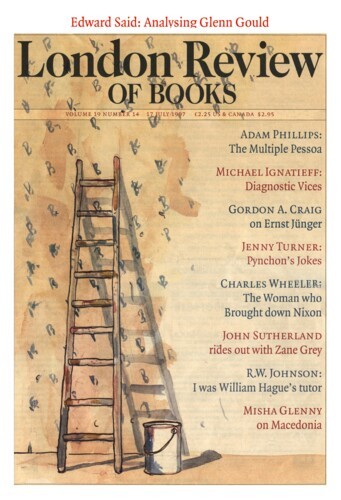Red pear leaves take the light at four,
and a patch of brick on the south, rear wall
stripped of wisteria: the two reds embering
a little while then dying back into the shadows.
A corner of the afternoon is all,
maybe half an hour, not much more –
October, November ... the beech tree bare now.
Sunday’s blow would have done it.
And always the Interstate out there, like surf,
running up to Boston or south to New York.
And broken-up city across the river,
a used-to-be textile port, gutted.
One good high-rise, an old style stepback,
and the power plant on Point Street,
glowing orange now in sodium light,
highlines feeding out of it, dripping
with porcelain isolators. We watch it every night,
red lights blinking from the three tall stacks,
the staggered sequence of its flashing crowns
scaring off the geese and Cessnas.
The turbines and generators roar, never ceasing.
We went inside. We saw it. We heard.
He made us lean underneath and see the flame
through the thick glass, deep in the steel.
And then we went back into the wind,
past the Nightingale Metals truck
and across the bridge on foot. No one saw.
No one knows. The eyes of the beech.
We have examined these afternoons
like a slide taken from a petri dish,
spindles of living matter, degraded, fraying,
taking on new shapes, gray, opalescent.
The red lights in the distance, blinking.
The roar in the boiler house.
The drawn shades.
Send Letters To:
The Editor
London Review of Books,
28 Little Russell Street
London, WC1A 2HN
letters@lrb.co.uk
Please include name, address, and a telephone number.

